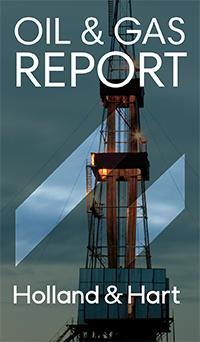Holland & Hart LLP
Other Oil and Gas Title Resources
State Oil and Gas Commissions & Programs
Colorado: Oil and Gas Conservation Commission
Idaho: Oil and Gas Conservation Commission
Montana: Board of Oil and Gas
Nevada: Division of Minerals
New Mexico: Oil Conservation Division
North Dakota: Industrial Commission
Texas: Railroad Commission
Utah: Division of Oil, Gas, and Mining
Wyoming: Oil and Gas Conservation Commission
Industry Organizations
American Association of Professional Landmen (AAPL)
Rocky Mountain Mineral Law Foundation (RMMLF)
